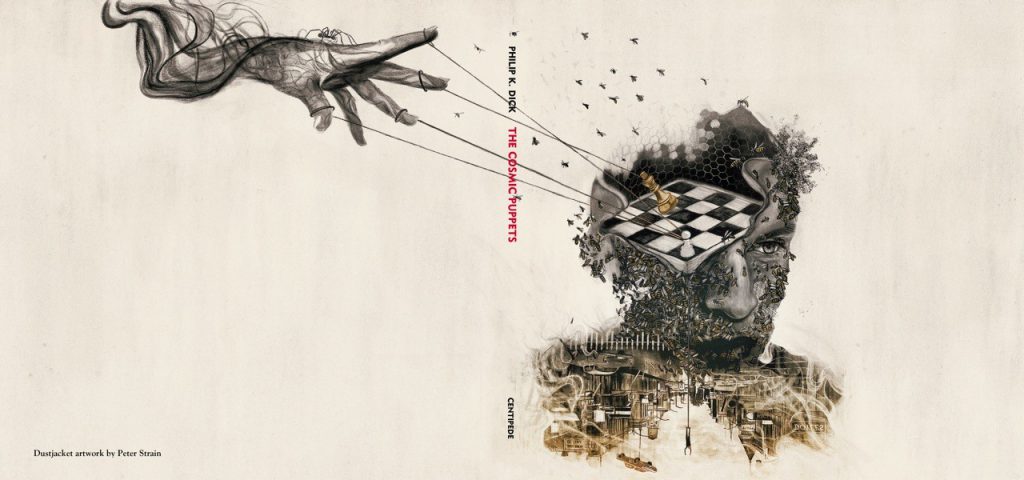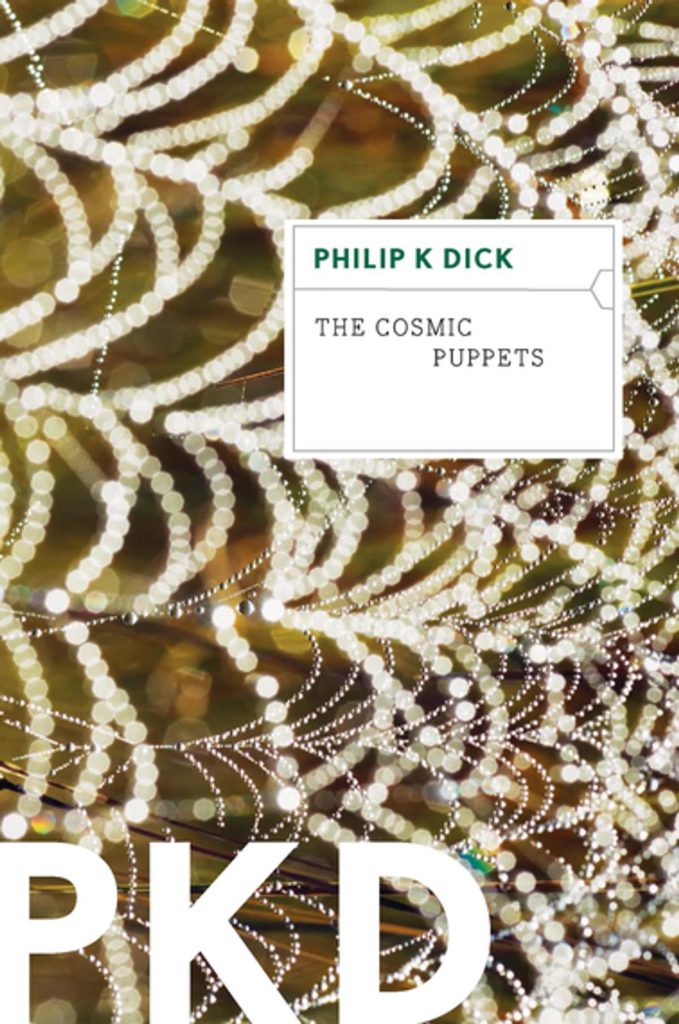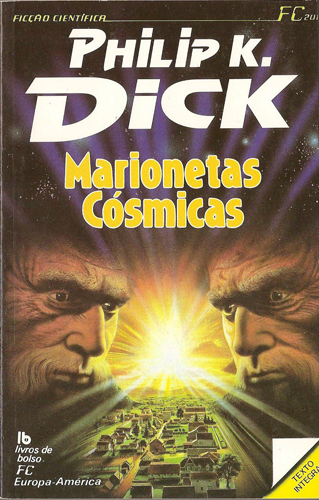Ted Barton has a problem. He doesn’t exist. When he visits his old hometown, the one he left eighteen years ago, he recognizes nothing. When he visits the town newspaper and checks into their archives, he discovers his name in the obituaries: funny, he doesn’t feel like he died of scarlet fever eighteen years ago. Something is Going On, and Ted Barton is going to hang around town for the length of an expanded novella until he finds out just what that Something is.
So begins the spaced-out mystery horror of 1957’s The Cosmic Puppets, which takes a Twilight Zone-style jumpstart of one individual’s profound alienation from history and memory, and builds from there, until the whole town, then the whole universe, is involved — and the nature of reality itself is called into question. In other words, just another book by Philip K. “for now we see through a glass, darkly” Dick (1928 – 1982), the fictionalizing philosopher whose works are the source for such movies and series as Blade Runner, The Man in the High Castle, A Scanner Darkly, Total Recall, and several others.
It turns out that the town Ted Barton vividly remembers – Millgate, Virginia – is still there, but on top of it lies the consistently projected illusion that he and the rest of the townspeople currently perceive. Through strenuously concentrating on his memories, he can bring back small details temporarily, but he can’t hoist up the real town alone: it’s a mass delusion that must be countered with a collective effort of memory.
Alliances are formed and sides taken, snakes and spiders fight with bees and moths, and primordial forces that predate the physical universe rise and join the psychic tug of war. Dick wrote most of this book in 1953, making it one of his first efforts, but PKD fans will notice that many of the classic preoccupations he explored in later books and writings — such as the 1978 speech “How to Build a Universe That Doesn’t Fall Apart Two Days Later” — are already in place, especially the old philosophical question, “what is real?
A warning to puppet enthusiasts and ventriloquists: puppets do not play a role in the story, except perhaps metaphorically; the original title of The Cosmic Puppets was A Glass of Darkness. This title is available through hoopla Digital via your local library (I read mine through Lincoln City Libraries) and also the Internet Archive, as well as well-curated used bookstores everywhere.
Dick, Philip K. The Cosmic Puppets. Boston: Mariner Books, 2012.
Top image: Cover of Centipede Press edition, 2020




